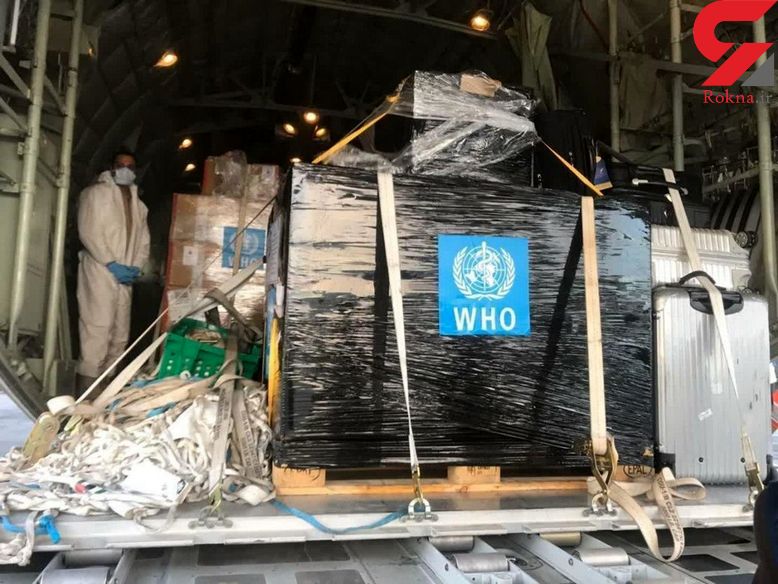The global outbreak of the virus originated from a living organism (bat, or any other creature) in a micro space, namely the local market in Wuhan; however, the pattern of transmission, spread and pandemic and its destructive effects can be an experience for the international community for a joint encounter with similar threats in the future.
Globally, the pattern is pandemic. Even if different countries have a high degree of control over its release, they will only prevent its entry for a limited time, and the dire economic consequences and global dominance of the Corona fear cannot be ignored. At present, global economic activity is greatly reduced under the influence of this monster. The global production, distribution and consumption chains have been out of the natural process for at least a short time. Ecotourism around the world has seen significant declines, with international shipping companies’ upward charts declining.
The slowdown in the growth of the world economy and the collapse of the stock market in developed countries are worrying signs of pandemic Corona spread in the world. China’s entanglement with the world economy on the one hand, and its second place in the world economy, and its supply of the world’s major needs, are issues that will overshadow the entire world economy. Countries around the world are closing or tightly controlling their national borders to stay away from the virus. The modern world of the 21st century has been threatened by the smallest microscopic creature.
At the regional level, Corona started from Wuhan province in central China but did not become epidemic elsewhere in China thanks to rigorous policies that were adopted. Conversely, in some countries of the world, such as Italy, South Korea, and Iran, it quickly moved from the primary focus of the disease to other areas, causing unmanageable geographic contamination.
Internationally, countries that have initially reduced their interactions with the outbreak centre, China, or managed their spatial functions in the first stage of the virus spreading, have suffered less damage, and countries that did not take the virus threat seriously and extended spatial functions in a longer time interval were exposed to more harm.
According to official statistics, the pattern of the geographic spread of the virus worldwide has focused on the countries of South Korea and Japan in East Asia, Iran in the Middle East and Italy in Europe.
Countries involved in the disease face numerous challenges nationally. In most of the countries affected, their national economy has taken on a formal and informal Corona effect. The huge fund allocation to prevent, combat and provide medical supplies and medical care, has imposed enormous costs on their economies. On the other hand, the crisis in small and medium-sized businesses and large upstream firms have reduced national production and largely challenged the process of economic growth and development.
At the informal economic level, the boom of the black economy in fragmented economic systems has exacerbated their inefficiency under these conditions. This is even more critical in countries that are experiencing the extensive spread of the virus and lack adequate financial resources.
Just as medically healthy people with immune systems are less susceptible to the virus, at the national level, strong and resilient economic systems in such situations will be able to overcome the crisis and weak economic systems will face the big challenge caused by the Corona crisis.
Given what was said above, the Corona crisis is becoming one of the most unprecedented crises in the world in the last few decades and spreading at an unbelievably rapid pace. Irrespective of the origin of the virus its impacts and implications are universal. The virus spread over a short period, affected tens of thousands of people and killed several thousand. It has slowed down the growing trend of the world economy in developed countries and may lead developing countries involved in this phenomenon to bankruptcy or economic collapse. This dangerous enemy has neither weapons nor sophisticated equipment but has spread through human beings and their social-spatial needs and interactions. It has become the world’s greatest economic challenge in the short term and has minimized space operations
As stated above, countering the Corona threat calls for a new paradigm in human line of thinking that, despite the power-oriented enemy- making in the intertwined world, necessitates global cooperation. The fact is that even powerful countries do not have the full capacity to deal with the consequences of the Corona crisis or similar crises. Just as the Corona crisis is universal it needs a global thought to come out of it. Although the impact of such crises on developing countries is much more severe than in developed countries, the economic-political consequences of such crises can also be fatal.
The key point is that, in the light of recent experiences, from the outbreak of similar diseases and the likelihood of their recurrence in the future the deliberate (terrorist) production and distribution of pathogens by humanitarian groups and organizations can become a likely behavioural pattern, causing serious harm to life and peace and human security and the world would enter a new and catastrophic period of insecurity.
The experience of this global crisis shows that the level of threat is far wider than the power of a political system to manage it and requires the full cooperation of governments. Therefore, there is no alternative to controlling it except relying on regional and global cooperation with the participation of all countries in the world. This crisis could form a model of global cooperation for emerging crises.










0 Comments